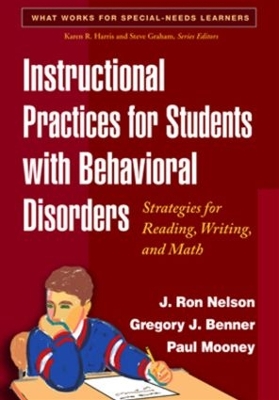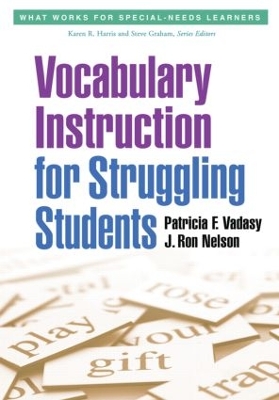What Works for Special-Needs Learners
2 total works
Instructional Practices for Students with Behavioral Disorders
by J Ron Nelson, Gregory J. Benner, and Paul Mooney
Presenting a broad range of instructional programs and practices that are proven effective for students with behavioral disorders, this is the first resource of its kind for K-3 teachers and special educators. Described are clear-cut strategies for promoting mastery and fluency in early reading, writing, and math, while tailoring instruction to each student's needs. Grounded in a three-tiered response-to-intervention framework that facilitates data-based assessment, decision making, and progress monitoring, the book includes helpful examples and reproducibles. A special chapter outlines instructional management procedures for enhancing student engagement and promoting positive behavior.
Vocabulary Instruction for Struggling Students
by Patricia F Vadasy and J Ron Nelson
Addressing a key skill in reading, writing, and speaking, this comprehensive book is grounded in cutting-edge research on vocabulary development. It presents evidence-based instructional approaches for at-risk students, including English language learners and those with learning difficulties. Coverage ranges from storybook reading interventions for preschoolers to direct instruction and independent word-learning strategies for older students. Guidance is provided on using word lists effectively and understanding how word features influence learning. The book also reviews available vocabulary assessment tools and describes how to implement them in a response-to-intervention framework.

